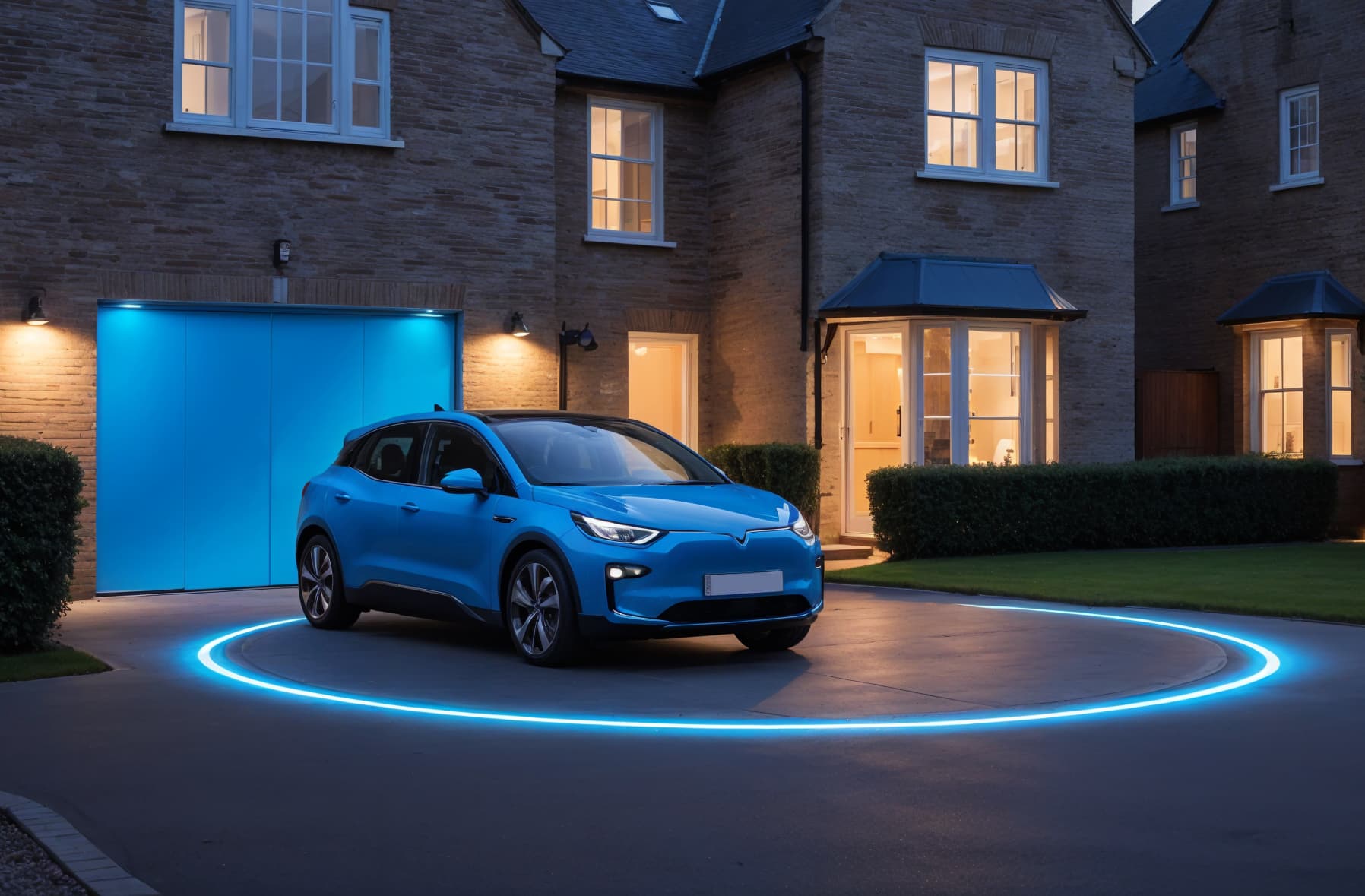Wireless Electric Vehicle Charging for Driveways
June 29, 2024 Driveways 5 min read

As electric vehicles (EVs) continue to rise in popularity, the demand for more efficient and user-friendly charging solutions grows ever stronger. One of the innovations on the horizon is wireless electric vehicle charging, a technology that aims to make EV charging as simple and seamless as parking your car in your driveway. We delve into the technology behind wireless EV charging, explore current developments, examine its advantages and challenges, and discuss the future outlook for this advancement.
Understanding Wireless EV Charging Technology
Wireless EV charging, also known as inductive charging, operates on the principle of electromagnetic induction. This technology involves two main components: a transmitter coil, embedded in your driveway, and a receiver coil, installed on the underside of the vehicle. When an electric current passes through the transmitter coil, it generates a magnetic field. This magnetic field induces a voltage in the receiver coil, which is then converted to direct current (DC) to charge the vehicle’s battery.
Current Developments
Recent advancements in wireless charging technology have propelled its feasibility for everyday use. Manufacturers and researchers are focusing on increasing the efficiency and speed of wireless charging systems. Various pilot projects around the world are demonstrating the viability of these systems. For instance, companies are making significant strides in developing commercial wireless charging solutions for both private and public use.
Moreover, integration with renewable energy sources is a crucial area of development. The potential to harness solar and wind energy for wireless EV charging represents a green technological synergy that aligns with the global push for sustainability. Such integration not only supports the local electricity grid but also reduces the carbon footprint associated with vehicle charging.
Advantages of Wireless EV Charging
Convenience and Ease of Use
One of the most significant advantages of wireless EV charging is the convenience it offers. Traditional plug-in chargers require users to physically connect their vehicle to a charging station. In contrast, wireless systems allow drivers to simply park their vehicle over a charging pad, for example on their driveway, eliminating the need for cables and plugs. This ease of use could encourage more people to make the switch to electric vehicles.
Enhanced Safety
Wireless charging systems mitigate the risk of electric shock and tripping hazards associated with cable-based chargers. Additionally, they reduce wear and tear on charging connectors, leading to lower maintenance costs and increased system longevity.
Automation and Smart Integration
The potential for integration with smart technologies and artificial intelligence (AI) is another exciting advantage. Future wireless charging systems could automatically identify vehicles, optimise charging times, and even interact with home energy management systems to use off-peak electricity.
Challenges to Overcome
Efficiency and Energy Losses
One of the main challenges of wireless EV charging is maintaining high efficiency. Inductive systems historically have higher energy losses compared to wired systems. However, ongoing research aims to close this efficiency gap, making wireless charging more viable for widespread adoption.
Infrastructure Costs
Implementing wireless charging infrastructure, especially for public roadways and driveways, requires substantial investment. Installing charging pads and integrating them with existing electrical grids pose logistical and financial challenges. However, with declining technology costs and potential governmental support, these challenges could become more manageable over time.
Standardisation and Compatibility
For wireless EV charging to become mainstream, it is crucial to establish industry standards ensuring compatibility across different vehicle models and charging systems. The industry is currently working towards these standards, but full standardisation will take time and coordinated effort.
Future Outlook
The future of wireless EV charging looks promising as technology continues to evolve and overcome existing barriers. Governments and industry stakeholders are increasingly recognising the importance of flexible and user-friendly charging solutions in accelerating EV adoption.
With advancements in AI and cloud computing, we can anticipate smarter and more efficient wireless charging systems. These systems could dynamically adjust charging patterns based on energy availability, grid demand, and user preferences. Furthermore, as the integration with renewable energy sources becomes more prevalent, wireless charging could play a significant role in promoting sustainable energy practices.
In the longer term, widespread deployment of wireless EV charging infrastructure in residential areas, workplaces, and public spaces could revolutionise how we power our vehicles. As the technology matures and becomes more cost-effective, the vision of simply parking your car to charge without hassle could soon become a reality.
Summary
Wireless electric vehicle charging for driveways represents a transformative step toward more convenient, safe, and sustainable transportation. While challenges such as efficiency and infrastructure costs remain, ongoing technological advancements and a collaborative effort towards standardisation provide a hopeful outlook. As this technology evolves, it promises to play a pivotal role in the future of green mobility, making electric vehicles more accessible and user-friendly for everyone. In the future we are hopping to be able to offer wireless charging as part of a driveway resurface.
Get your free surfacing quote
Let our team of experts handle your surfacing — get a free quote today.